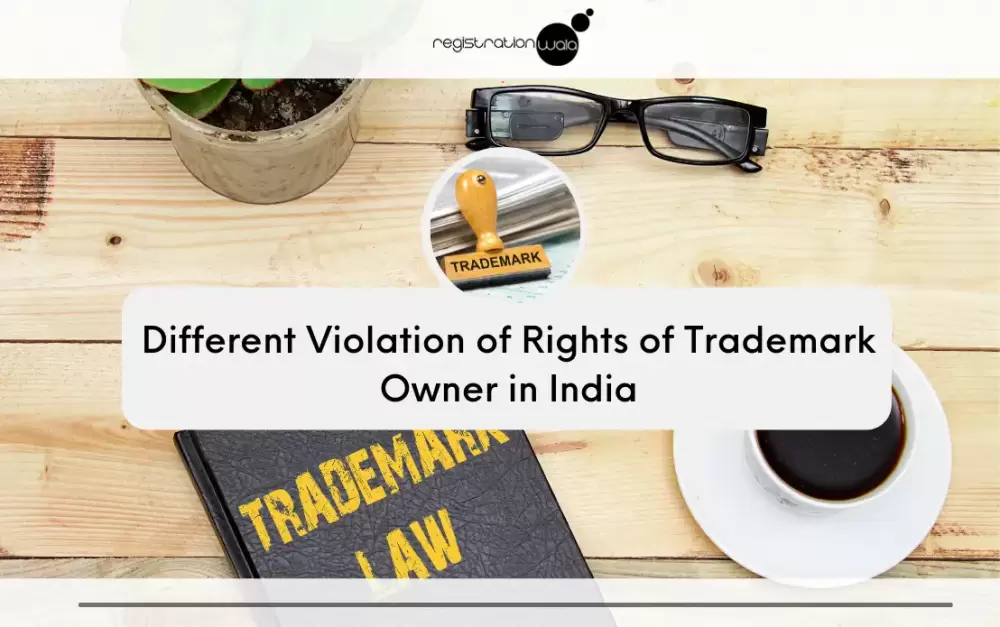Violation of the rights of Trademark Owner
- April 20, 2022
- Registrationwala

- Home
- /
- Knowledge Base
- /
- IPR Services
- /
- Trademark Registration in India
- /
- Violation of the rights of Trademark Owner
Violation of the rights of Trademark Owner
Trademark is one of the ways in the form of words, marks, or taglines to show your products or services to the general public uniquely and effectively. Trademark is also a way to advertise your product cost-effectively. When you give a name or identity to your products, it could be in any form of image, letter, slogan, or combination of colors.
But the problems to manage the trademark arise when another entity starts using your trademark without seeking your permission. This is regarded as trademark infringement.
As we all know that we are living in the country which comes at place number 2 in terms of population, so keeping check who else is using our trademark seems to be quite difficult, moreover when other people using the somebody's else trademark then they tweak in the existing trademark to use it in their own business so that on the face it is little difficult to oppose the trademark. These things make the management of a trademark portfolio more complicated and cumbersome.
Using another person's trademark constitutes infringement, which is a sin and punishable under the trademark laws in India. Trademark infringement can harm the original owner in many ways, such as loss of the reputation and valuation of the business.
Also Read: Conduct a Trademark Search to Find out if it is Available
Trademark shows the quality of your product, but when the infringer degrades this quality, this will lead to customer dissatisfaction, and consumers feel cheated without knowing that somebody else is cheating them, not the real owner. In this way, the value of the existing business starts eroding because consumers start shifting to another brand.
Because of all these malpractices adopted by the competitors, trademark owners resort to professionals who can manage their portfolio of trademarks and check on these kinds of ill-legal practices.
Trademark infringement is also subject to some interpretation. Sometimes, another party infringes our exclusive right, but this is not the case in reality. So, it is pertinent to peep into the legal provision to know what constitutes infringement or what's not to unearth the truth.
Followings are some of the guiding principles to understand the cases which come under the infringement:
- If your trademark creates confusion among the general public because of its similarity with another existing trademark, it amounts to trademark infringement.
- If you are using a similar or identical mark used for a similar product, this is a case of infringement.
- In the case of a well-known trademark, if you are using a mark similar to the well-known trademark, it constitutes the trademark infringement irrespective of whether it is used for goods under the same class.
- Using the registered trademark in any advertisement adversely affects the reputation of that mark.
These cases clearly show that one person is infringing the other person's rights if the case falls under one of the cases mentioned above. But as I have already told you, sometimes some cases resemble the infringement, but they are not. So, let's count them also:
- Using a mark to show the quality, quantity, and nature shall not infringe trademark infringement.
- Suppose you are using another person's word, but that is outside the scope of trademark registration. In that case, the other person can not object to the trademark registration.
Now you must be aware of the trademark infringement. So, while devising your trademark strategy, you should keep these points in mind. This will help you in both ways, whether you are an existing owner of the trademark or going to file a trademark registration application in India.
- 3134 views
